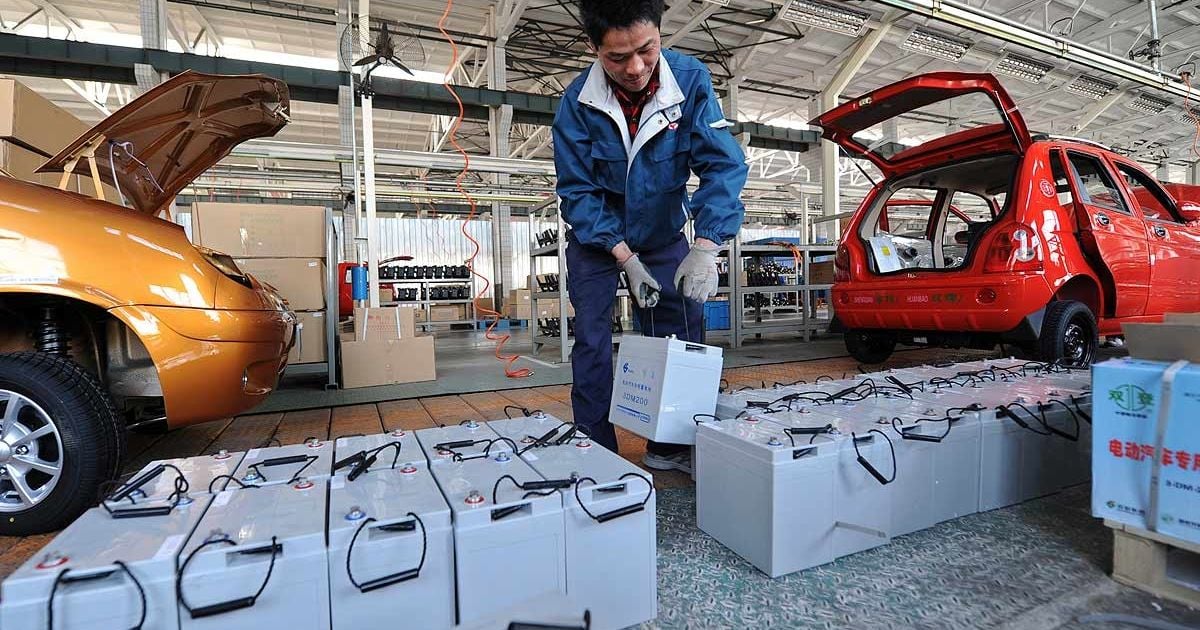Electric vehicle battery recycling involves retrieving valuable materials from end-of-life or discarded batteries of electric vehicles including lead-acid batteries, lithium-ion batteries, and nickel-metal hydride batteries. The recycling helps recover materials such as lithium, cobalt, graphite, and manganese which are used in manufacturing new batteries and other consumer electronics. With the growing sales of electric vehicles worldwide, battery recycling is important to ensure uninterrupted supply of raw materials for battery manufacturing as well as reduce environmental footprint.
The global electric vehicle battery recycling market is estimated to be valued at US$ 2.77 Mn in 2024 and is expected to exhibit a CAGR of 6.3% over the forecast period 2024-2031, as highlighted in a new report published by Coherent Market Insights.
Market key trends:
Sustainability initiatives by various governments and automobile manufacturers are driving the electric vehicle battery recycling market. Stringent regulations regarding waste batteries along with supply constraints of battery materials are compelling industry players to implement closed loop recycling programs. Automobile manufacturers are collaborating with battery recycling companies to set up recycling infrastructure close to their production plants. Furthermore, recovering materials from end-of-life batteries helps reduce dependence on mining activities and imports, thereby improving energy security. Recycling also lowers carbon footprint associated with battery production.
SWOT Analysis
Strength: Global Electric Vehicle Battery Recycling Market Size helps in recovering valuable materials like lithium, cobalt, nickel and copper. It also reduces dependency on mining activities and ensures sustainable supply of raw materials.
Weakness: Collection and transportation of spent batteries pose challenges. Setting up dedicated recycling plants require high initial investments. Standardization in battery recycling processes is still evolving.
Opportunity: Growing electric vehicle sales worldwide is increasing the volumes of spent batteries. Stringent government regulations to promote battery recycling is helping to establish a recycling infrastructure. Advancements in recycling technologies can improve material recovery rates.
Threats: Increased competition from raw material suppliers can impact battery recycling margins. Dependence on electric vehicle sales makes the recycling market vulnerable to any slowdown in EV adoption. Geopolitical issues affecting mining regions pose supply risks.
Key Takeaways
The global electric vehicle battery recycling market is expected to witness high growth. The global electric vehicle battery recycling market is estimated to be valued at US$ 2.77 Mn in 2024 and is expected to exhibit a CAGR of 6.3% over the forecast period 2024-2031.
Regional analysis reveals that Asia Pacific currently dominates the market led by China, Japan and South Korea. These countries are major EV battery manufacturers as well as have a large installed base of electric vehicles. Stringent recycling targets set by governments is also supporting regional market growth. North America and Europe are other high potential markets for battery recycling given the electric mobility push in these regions through policy support and charging infrastructure build-out.
Key players operating in the electric vehicle battery recycling market are Synutra Inc., Darling Ingredients Inc., Archer Daniels Midland Company, BASF SE, Koninklijke DSM NV, Foodchem International Corporation, Glanbia PLC, Holista, Colltech Ltd, ESM Technologies LLC, Bergstorm Nutrition Inc., and Gelita AG. These companies are investing in developing advanced hydrometallurgical and pyrometallurgical recycling processes to recover higher yields of materials from spent lithium-ion batteries. Partnerships across the electric vehicle and battery value chain are also enabling improved collection programs crucial for establishing sustainable recycling ecosystem.
*Note:
1. Source: Coherent Market Insights, Public sources, Desk research
2. We have leveraged AI tools to mine information and compile it



